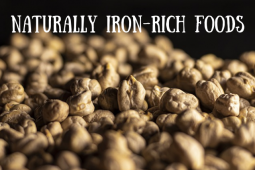Vitamin D: Your Guide to the ‘Sunshine Vitamin’

The Benefits of Vitamin D: Why is it Vital to Health and Fitness
Vitamin D is known as the sunshine vitamin. It is naturally produced by the body in response to your skin being exposed to sunlight. Getting technical, a chemical reaction to UVB radiation (sun exposure) synthesizes cholecalciferol which is one of the most important compounds in Vitamin D. You can also ingest Vitamin D through some foods. Although in comparison to other vitamins, it is less frequently found in food.
Vitamin D hit the headlines recently. It has been associated with better survival rates for a certain pandemic… This is not new news for anyone in the know. Vitamin D has long been associated with a robust immune system.
On This Page
This page covers Vitamin D in depth. You will find an overview of the chemistry of this all-important substance below. The benefits (and costs of being deficient) are also covered below – along with the foods which are highest in it.
As a regular disclaimer: This is not medical advice – simply information for general interest readers. If you are unsure of your levels, or suspect any issues related to this, then you should seek the advice of a qualified medical professional.
What Exactly is Vitamin D?
Vitamin D is a natural hormone our body produces and can also be a nutrient we eat. It is a fat-soluble vitamin that is known to help the body absorb and retain calcium and phosphorous. Many of the body’s organs have receptors for vitamin D, which suggest a range of health benefits.
We get this vitamin as a consequence of exposure to sunlight. It can be taken as a supplement (either alone or as part of a multi-vitamin) or ingested via your food.
Which Foods are High in Vitamin D?
There are a range of foods which act as a good source of vitamin D. Oily fish, such as salmon, sardines, herring, and mackerel are all good sources of the vitamin. Vitamin D can also be found in red meat and liver.
Egg yolks are also a handy source for vitamin D. You will also find the vitamin in some fortified foods, with good examples being breakfast cereals and some fat spreads. In some countries you will also find the vitamin is added to cow’s milk.

How Much Vitamin D do I need?
It is generally accepted that you need around 10 micrograms of vit. D a day (a microgram is 1,000x smaller than a milligram). In the summer months, simple sunlight will usually be enough to fill your full quota for the day.
Health authorities suggest that a supplement is advisable if:
- You are often indoors. This is particularly the case if you are frail or housebound.
- If you are in an institution, such as a care home.
- You usually wear clothes that cover up most of your skin when you are outdoors.
Health Risks Associated with a Lack of Vitamin D
Vitamin D is mostly associated with being essential for strong bones, as it helps the body use calcium that is naturally ingested through your diet. A lack of the vitamin, therefore, can be associated with diseases such as rickets. In this disease the bone tissue does not form properly which can lead to soft bones and deformities of the skeleton.
Other health risks from a lack of the sunshine vitamin can be an increased risk of death from cardiovascular disease, cognitive impairment in older adults, asthma in children and an increased risk of cancer. Low levels are also associated with a sub-par immune system – making those lacking it more prone to viruses such as colds and flu.
Health and Wellbeing: Benefits of Vitamin D
Aside from the combatting the health risks listed above, here is a rundown of some of the other health benefits associated with vitamin D:
- Studies have shown that there is a link between low levels of vitamin D and depression. Right now, experts are not sure if that lack leads to depression – or if depression leads to a lack of vitamin D. Research is ongoing.
- Vitamin D can lead to weight loss. If taken with calcium, the vitamin can make you feel less hungry, leading to a lower calorie intake.
- Your body has a healthier immune system with the right levels of vitamin D. This can help fight the common cold, as well as more serious ailments such as flu.
- Vitamin D can lessen your chances of contracting Multiple Sclerosis, a disease where your immune system attacks your central nervous system. It has also been shown that the symptoms can be eased, and the disease’s growth slowed with the right levels of Vitamin D in MS sufferers.
- The vitamin can also boost oral health. It has been shown that it lowers the risk of tooth decay and of contracting gum disease.
- It is possible that the sunshine vitamin can prevent diabetes. Studies are not conclusive, although it has been shown that Vitamin D with calcium can effectively lower the chances of contracting type 2 diabetes.
- Short term Vit D deficiency can raise blood pressure. A recent review (2019) stated ‘even short-term vitamin D deficiency may directly raise BP [blood pressure] and promote target organ damage.’
Wrapping Up: An Important Vitamin
It is clear that the right amounts of D can have enormous benefits on your health levels. During the summer months, as long as are out in the sun for some time each day, you will receive enough vitamin D naturally. During the winter, the right food stuffs or supplements can ensure you have enough. Boosting your Vitamin D levels is simple and comes with a wide range of benefits – including a better immune system.
More Pages Covering Important Foods and Vitamins:


